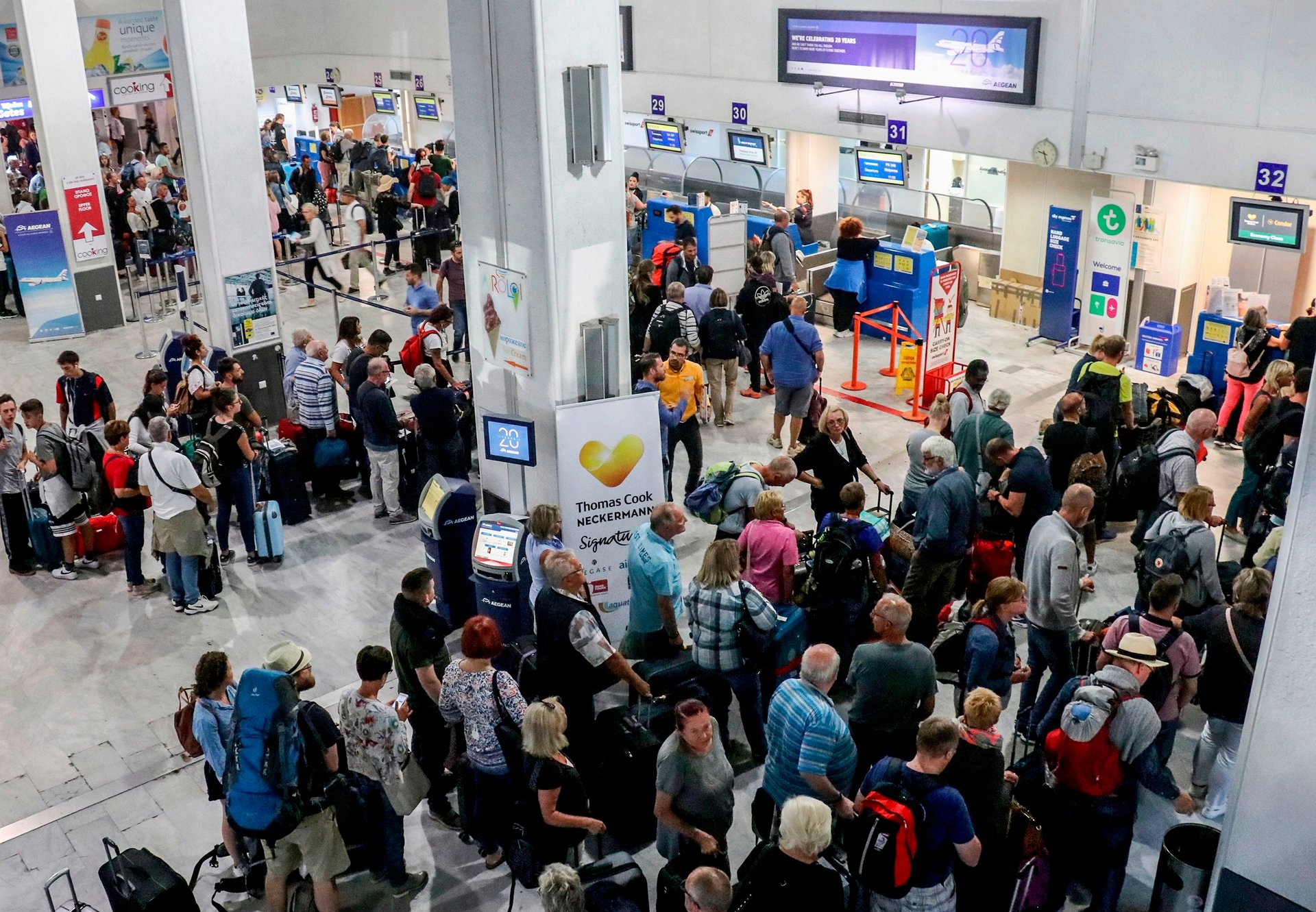Nearly 55,000 Thomas Cook customers are still stranded overseas
After 178 years, UK travel company Thomas Cook this week announced its bankruptcy and liquidation, plunging more than 150,000 travelers into chaos and uncertainty.


After 178 years, UK travel company Thomas Cook this week announced its bankruptcy and liquidation, plunging more than 150,000 travelers into chaos and uncertainty.
Seemingly within hours, the UK’s Civil Aviation Authority (CAA) launched the snappily titled “Operation Matterhorn” to bring these stranded passengers back to the UK. Six days on, some 93,000 people are safely returned.
But another 55,000 are still waiting.
While many are biding their time in hotels or airports, passengers in Orlando, Florida reportedly suffered the ignominy of being offered free admission to Sea World. (At least one visitor expressed a preference to remain on the airport floor instead.)
In one particularly tragic case, a 67-year-old German passenger in Reus, Spain suffered a cardiac arrest and died at the airport while en route to her rescue flight.
For the remaining passengers, the wait should be no more than a few days. According to a CAA statement posted today, another 15,000 people are expected to return home by the end of the weekend. Nearly 1,000 flights have been scheduled between Sept. 23 and Oct. 6 as part of the operation, which CAA chief Richard Moriarty dubbed the “largest ever peacetime repatriation operation.”
There’s food for thought here for enthusiastic Brexiteers. EU regulations give stranded holiday-makers financial protection, allowing most, if not all, to receive compensation, a hotel room, and other amenities. If the UK leaves the EU on Oct. 31, the law will no longer apply—excepting the very faint possibility that a future government passes legislation to protect consumers.